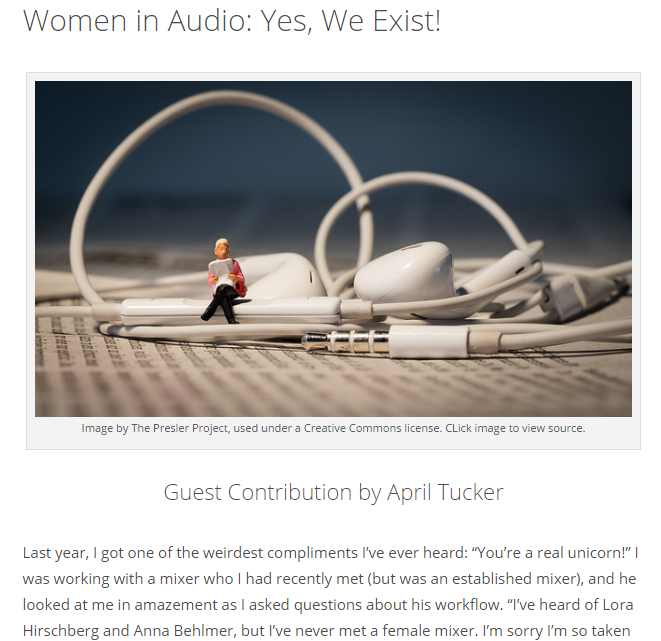A year ago, I contributed a post to Designing Sound about being a Woman in Audio.
To everyone’s surprise, it had the most day-one traffic of any post in the site’s history. The response has been overwhelmingly positive. The article has been used as a resource for industry panels and audio classes, and I’ve been invited to speak publicly about it. It was through the post that I was introduced to SoundGirls and invited to write this monthly blog.
The enthusiasm and support (from men and women) is really encouraging. However, I’ve also gained perspective this year meeting a lot of people and hearing their stories. There is bias and discrimination in the audio industry beyond women and it often goes unspoken. Here are some challenges and stories shared:
- A Mexican mixer in the US doesn’t seek out Spanish jobs because the work experience “doesn’t carry the same weight” to English employers.
- A blind sound editor (who uses screen reading software) is underemployed. While she works for a company that’s sensitive to disabilities, she struggles to find additional work.
- A female from the Middle East said discrimination against women is very different in her home country (a country that doesn’t have good relations with the US). But, one of her concerns living and working in America is how some will treat her when they learn what country she’s from.
- Many foreign engineers and musicians (who are legally in the US on a student or work visa) were turned down for a job or gig because of their immigration status. This is illegal.
- Some sound professionals (in the US) voiced they felt discriminated against for not having work history in Los Angeles, New York or Nashville.
In last year’s article, I said, “Be aware of biases (or discrimination), and speak up if you see it happening.” While it’s great that we are building awareness about the issues women face in the industry, I question if we should stretch our mission a bit further. For example, we’re seeing more panel discussions and talks at trade shows about women in audio. Why do we not have panel discussions that are more broad and inclusive – like, “minorities in audio” or “personal challenges working in audio”? Are there ways we (as members of SoundGirls) can be more inclusive of anyone seeking help for discrimination regardless of gender or other perceived advantages?
We shouldn’t have to announce our differences – such as race, sexual orientation, economic background or age – to gain support from our colleagues. But, sharing our unique challenges, perspectives and experiences could help us better understand each other. Creating that kind of environment is going to help us build a path towards equality for everyone in our industry.
